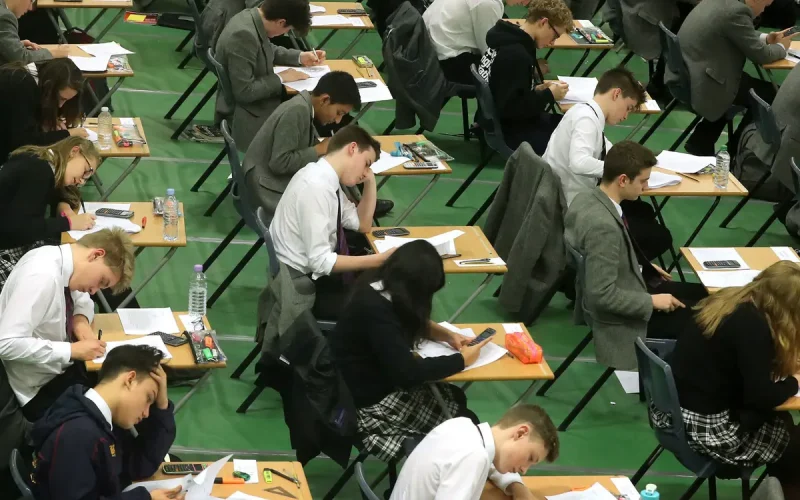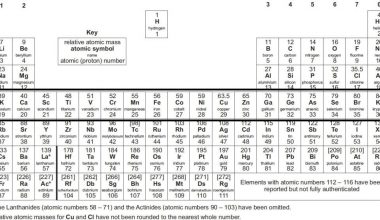There could be various reasons for not meeting your grades, that can make you want to retake GCSE, ranging from falling ill during GCSE to emotional instability. Even though it can be discouraging, remember that there are many chances for you to achieve the grades you want.
If you’ve already passed your GCSE but want to improve your results, retaking GCSE could be a great opportunity to achieve the excellent outcome you’ve been hoping for. It’s worth considering a GCSE retake to reach your desired level of success.
While it is the norm for individuals who did not pass their exams to retake GCSE, you can also do the same if you have already passed yet desire a level of success you didn’t attain initially.
This article answers, “Can I retake GCSE if I already passed?”. It also highlights several reasons why you should, the cost of a GCSE retake, and how to.
Table of Contents
Can You Retake a GCSE If You Have Already Passed?
A GCSE can be retaken by anybody, and you are as well allowed to retake the math and English tests as often as you would like to. All the details you require for your GCSE exam retake are provided below.
Are There Rules to Resitting GCSE?
While there are no stipulated rules for GCSE retakes, government policies are in place on what subject you can retake.
GCSE retakes allow you to explore other subjects of interest even if you didn’t write them in the first sitting.
For instance, if you failed history in your first trial, you may choose to switch to psychology during a GCSE retake if you are interested in it.
However, there are subjects you must resit if you do not meet the required grade for school or apprenticeship purposes.
Those who fail to get a grade of 4 or above in Math or English may have to keep studying these subjects until they are 18.
What you will need to study often depends on your initial grade. According to ICS learn.co.uk,
- If you got a grade of 3 and will be studying full-time (540+ hours) next year, you’ll need to resit the GCSE.
- If you got a grade of 3 and will be studying part-time (150 – 539 hours), you can take a functional skills qualification instead of GCSE.
- If you got a grade of 2 or below, you can take a functional skills qualification instead of a GCSE.
- If you’re going on to an apprenticeship, studying Maths and English will be part of your program.
Read Also: Can you Retake or Resit A-Levels?
Why Should I Retake GCSE If I Already Passed?
Passing an exam and getting the required grade for either school or personal interest are different. You should consider retaking GCSE if you have already passed when your grades are still below par with what is required.
Below are some reasons why you should retake GCSE:
- Improving Grades
One of the main reasons students consider retaking a GCSE they’ve already passed is the desire to improve their grades.
A higher grade can potentially lead to better opportunities in the future, especially when applying for competitive courses or jobs.
- Changing Pathways
Students might also choose to retake a GCSE if they change their educational or career pathways. For instance, if a student initially passed their GCSE in Mathematics but later decides to pursue a career in engineering, they might want to retake the Math GCSE to ensure a stronger foundation.
- University Requirements
Certain universities or colleges might require specific grades in particular subjects for admission. If a student’s initial GCSE grades don’t meet these requirements, they might opt to retake the necessary subjects to fulfill the entry criteria.
When can I Resit GCSE?
Knowing when to resit your GCSE exams is important if you consider retaking them. The timing for GCSE resits can vary based on a few factors, including the specific exam board you’re registered with and the availability of exam sessions.
Typically, GCSE exams are offered twice a year, in the summer and winter seasons. The main examination series takes place in the summer, usually in May or June, while a smaller series is held in the winter, often in November.
These two series provide opportunities for both students who are currently in school and those who are looking to resit exams.
The upcoming exam series could be a great option for students who have already passed their GCSEs and seek to improve their grades or retake specific subjects.
The winter session might be particularly suitable if you aim to retake exams shortly after receiving your results or if you want to spread your retake efforts.
Below are key dates on GCSE retakes 2024
- Deadline for entries: Wednesday 4 October 2024
- Deadline to submit English language spoken language endorsement grades: Sunday, 5 November 2024
Exam dates
- English language paper 1: Tuesday 7 November 2024
- Mathematics paper 1: Wednesday 8 November 2024
- English language paper 2: Thursday 9 November 2024
- Mathematics paper 2: Friday 10 November 2024
- Mathematics paper 3: Monday 13 November 2024
Results
- Results released to schools and colleges: Wednesday 10 January 2024
- Results released to pupils: Thursday 11 January 2024
Read Also: What Time Do Schools Start and Finish in the UK?
How Many Times Can I Resit a GCSE?
You can resit GCSE as many times as possible till you get your desired grade. However, most institutions will suggest taking another recognized qualification once you fail to gain a grade 4 pass in English and/or math after a retake.
Where Can I Retake GCSEs 2024?
You must first decide what subject you are retaking and find a date for your GCSE retake. Afterwards, you can now decide on where to retake GCSEs.
The availability of retake opportunities can depend on your location, the exam boards, and the educational institutions offering retake courses.
Here are some potential places where you might be able to retake your GCSEs:
#1. Schools and Colleges
Many schools and colleges offer GCSE retake programs for students who want to improve their grades.
Studying for your GCSEs while taking A Levels in other subjects at many schools and colleges is possible. Therefore, if you need to resit one or two subjects, do not worry; it will not impede your progress completely.
If you prefer to learn in a traditional classroom setting but require more flexibility, you may want to consider taking evening classes.
Numerous colleges and a few schools provide evening classes as an alternative, which can be beneficial if you need to work while studying.
If you’re enrolled in an educational institution, check with your teachers or advisors to see if they offer retake courses. Retaking GCSE in a school or college means you’ll sit alongside others in your class during your exam.
Also Read: What Happens If You Fail Your GCSEs Twice?
#2. Online Platforms as a Private Candidate
Numerous online platforms provide GCSE retake courses, allowing you to study from the comfort of your own home.
On these platforms, you can access study materials, take practice exams, and receive assistance from tutors.
Having greater flexibility is one of the benefits of this approach, as you don’t have to follow a set timetable.
Whether you have work or a busy family and social life, you can conveniently plan your studies around your other obligations. Additionally, you can even pursue your A Levels online while you’re retaking exams.
Basically, you can move through the topics as quickly as you like and spend a lot more time on the areas you struggle with than you’d be able to in a class with other students.
Plus, you’ll have a personal tutor, so you’ll get plenty of support rather than competing for attention in a classroom. Unlike retaking GCSEs in schools and colleges, you must arrange your sitting.
Although you will sit in person simultaneously as other GCSE students, you must find a local school or college that will permit you. To be on the safer side, you should start your hunt as early as six months before your exams start.
You should be aware that there’s a fee to sit the exam, which you’ll pay directly to the exam centre. The exact cost of this will vary depending on which centre you choose.
#3. Adult Education Centers
Some adult education centers offer GCSE retake classes for individuals no longer in traditional school settings. These centers provide a flexible learning environment for adult learners.
Read Also: Do You Have to Pass Science GCSEs to Get a Job?
How much will it cost to Resit my GCSEs?
The cost of resitting GCSE exams covers exam fees and course fees.
The fees for your course will include the cost of your tuition and/or course materials and will differ based on your preferred location and method of studying.
If you intend to retake GCSEs in a school, exam fees can run up to £1,000 per subject. However, online courses offer greater flexibility and affordability.
You should find online courses with 1:1 tutor support for about £38 a month, interest-free. On average, these courses have a total cost of under £300.
If you are above 16, have completed schooling, and did not secure a Grade 4 or higher in GCSE English and/or Maths, you can pursue these subjects for free at a nearby learning centre. If you think you meet the criteria, contact the learning centre directly.
On The other hand, the exam fees are an extra expense that must be paid directly to the exam center.
The exam center determines the cost of the exam, so it can vary significantly, but generally, for GCSEs and International GCSEs, you can expect to pay at least £100 per exam.
You should consider contacting multiple exam centres in your area. This way you can settle for the best pricing.
Read Also: GCSE Retake for Adults: 7+ Ways To Get GCSEs After Leaving School (for Adults)
How Do I Prepare for GCSEs Retake?
Preparing for your GCSE retakes requires a positive attitude and commitment to excellence.
First, you must find out what went wrong and focus on correcting it while preparing for a retake.
Here is a full guide on how to effectively prepare for your GCSE retakes:
#1. Assess Your Performance
Review your previous exam results and identify the subjects or topics you need improvement. This self-assessment will help you create a targeted study plan.
#2. Set Clear Goals
Set specific goals for each subject you’re retaking. Define what grades you aim to achieve, and make sure your goals are realistic and attainable.
#3. Create a Study Schedule
Design a study schedule that allocates sufficient time for each subject you’re retaking. Balance your study time with other commitments to ensure consistency and avoid burnout.
#4. Gather Study Materials
Collect all the necessary study materials, including textbooks, notes, past exam papers, and online resources. Having organized study materials will streamline your preparation process.
#5. Review and Practice
Dive into the content you need to review. Break down subjects into smaller topics and revise one topic at a time. Practice solving questions related to each topic to reinforce your understanding.
#6. Seek Additional Support:
If you encounter challenging concepts, don’t hesitate to seek help. Approach your teachers, tutors, or online forums for clarifications and explanations.
#7. Use Study Techniques
Experiment with various study techniques such as summarizing, flashcards, mind maps, and mnemonic devices. Find the best methods for your retaking subjects and enhance your retention.
#8. Take Mock Exams
Simulate exam conditions by taking mock exams or practice papers. This will familiarize you with the exam format and time constraints, helping you manage your time effectively during the exam.
#9. Stay Consistent
Consistency is key to success. Stick to your study schedule, and avoid cramming. Regular, focused study sessions will yield better results than last-minute intensive studying.
#10. Track Your Progress.
Regularly track your progress and make adjustments to your study plan if needed. Celebrate your achievements and milestones along the way.
Are GCSE resits marked in the same way as GCSEs?
Yes, GCSE resits are typically marked in the same way as the original GCSE exams.
The marking process for the initial and retake exams follows the established guidelines and assessment criteria set.
The marking for English and maths GCSE resits in the autumn term is the same as the summer exams regarding what is assessed. However, there is a distinction in the method used to determine grade boundaries.
The approach varies during the summer series as the determination of boundary placement considers the cohort’s key stage 2 data, which is utilized to estimate their expected performance in the exam.
Due to the smaller number of pupils taking autumn resits and their uneven ability distribution, the cohort’s data is less valuable.
Therefore, more significance is placed on comparing papers to those from the previous summer series to determine grade boundaries.
Also See: How to Sit For GCSE Exams Privately: The Extensive Guide
What happens if the resit grade is lower than the original?
If you resit grade is lower, you can always make do with your original result. You do not lose your grades when you decide to retake GCSE.
If you retake multiple times, the highest grades you earned can be used for university requirements or other needs in the UK.
Frequently Asked Questions
Yes, there’s no time limit on retaking GCSEs. However, checking with exam boards or educational institutions for specific guidelines is best.
Yes, many universities consider the highest grades achieved, whether in the initial exam or retakes. It’s worth researching individual university policies.
Yes, various online platforms and educational institutions offer GCSE retake courses.
The number of retake attempts allowed can vary between exam boards, so verifying their policies is essential.
Employers often value determination and the commitment to self-improvement. Improved GCSE grades can positively impact job prospects.
Conclusion
The decision to retake GCSE after passing is personal and depends on various factors. Whether it’s about achieving higher grades, fulfilling university requirements, or changing one’s educational trajectory, the option is available.
Retaking a GCSE demands dedication, effective preparation, and a positive mindset. It’s a journey that requires hard work but can yield fruitful results regarding personal growth and expanded opportunities.
References
- Tes.com – GCSE resits: everything you need to know
- National Careers. Service.co.uk – Exam resits






